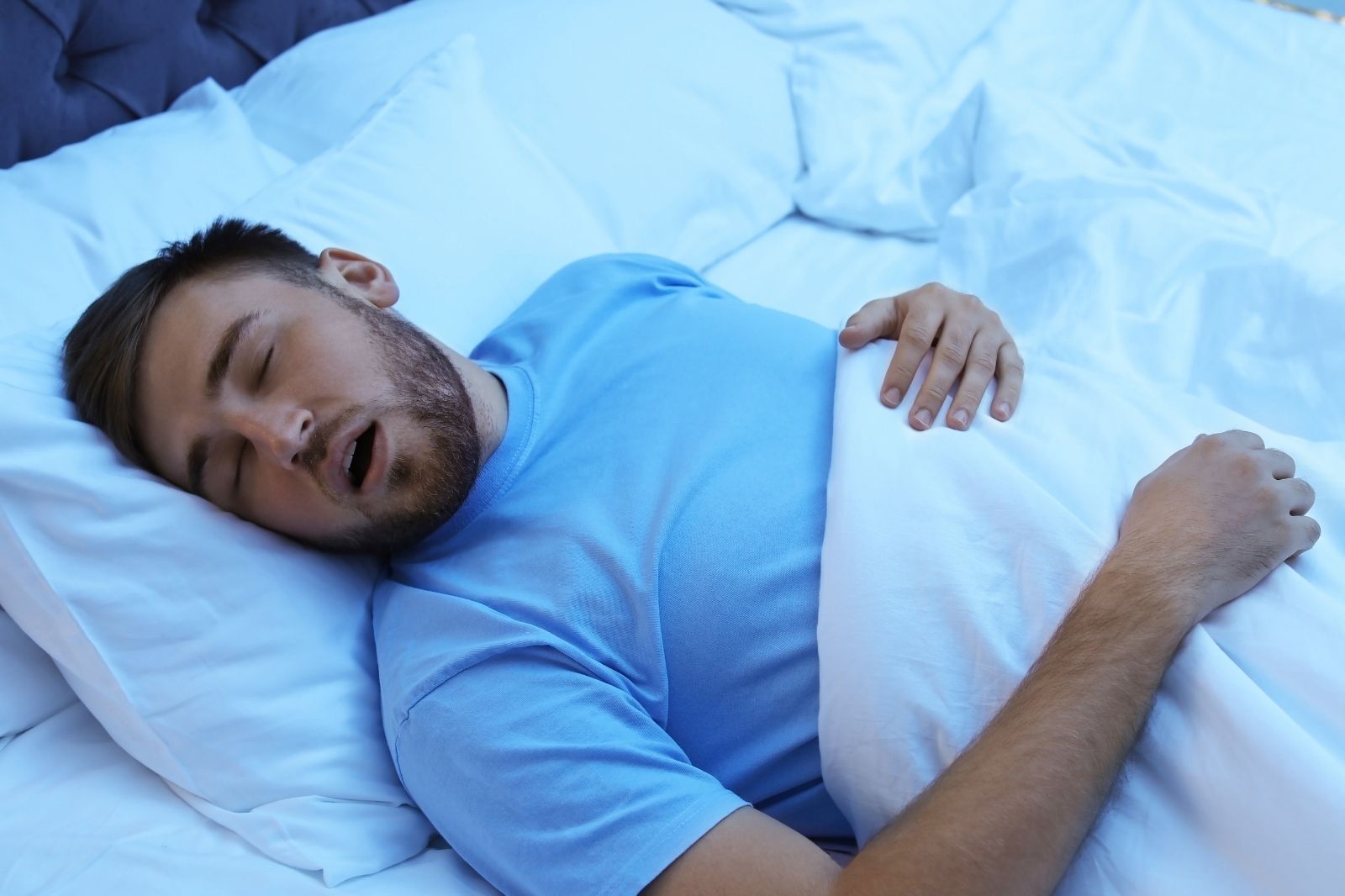Understanding Sleep Apnea: Causes, Symptoms, and Treatment

Sleep apnea is a common but serious sleep disorder that can cause a variety of health issues. Sleep apnea occurs when breathing repeatedly stops and starts during sleep. This condition can lead to various health problems and significantly impact your quality of life. The hardest part is diagnosing it since most people don’t realize they wake up multiple times at night. In this blog, we will go over the causes, symptoms, and treatment options for sleep apnea.
What is Sleep Apnea?
Sleep apnea is characterized by pauses in breathing or shallow breaths during sleep. These interruptions can last for a few seconds to minutes and may occur multiple times throughout the night. The most common type is obstructive sleep apnea (OSA), where the throat muscles intermittently relax and block the airway. Less common types include central sleep apnea, which involves a failure of the brain to signal the muscles to breathe, and complex sleep apnea syndrome, which is a combination of obstructive and central sleep apnea.
Causes of Sleep Apnea
- Excess Weight: Obesity is a significant risk factor for sleep apnea. Excess fat around the neck and throat can increase the likelihood of airway obstruction during sleep.
- Anatomical Factors: Structural issues, such as a thick neck, a narrow airway, or enlarged tonsils and adenoids, can predispose individuals to sleep apnea.
- Age: The risk of sleep apnea increases with age. As we age, the throat muscles can weaken, leading to a higher chance of airway obstruction.
- Gender: Men are more likely than women to develop sleep apnea, although the risk for women increases significantly after menopause.
- Family History: A family history of sleep apnea may increase your risk.
- Lifestyle Factors: Smoking, alcohol use, and sedative medications can relax the muscles in the throat and increase the likelihood of airway collapse.
Symptoms of Sleep Apnea
- Loud Snoring: Frequent and loud snoring is a common symptom of sleep apnea. It may be interrupted by periods of silence when breathing stops.
- Daytime Sleepiness: Excessive daytime drowsiness, fatigue, or difficulty staying awake during the day are common due to disrupted sleep.
- Choking or Gasping During Sleep: Episodes of choking, gasping, or snorting can indicate sleep apnea and usually occur when breathing resumes after a pause.
- Morning Headaches: Frequent morning headaches can be a sign of disrupted sleep caused by sleep apnea.
- Difficulty Concentrating: Difficulty focusing, memory problems, or irritability can result from poor sleep quality due to sleep apnea.
- Frequent Nighttime Urination: Waking up frequently to urinate during the night, known as nocturia, can also be a symptom.
Diagnosis of Sleep Apnea
Diagnosing sleep apnea typically involves a combination of medical history, physical examination, and diagnostic tests. Your doctor may recommend:
- Sleep Study (Polysomnography): This overnight test monitors various physiological functions, including breathing patterns, heart rate, and brain activity, to diagnose sleep apnea.
- Home Sleep Apnea Testing: For some patients, a portable sleep monitor used at home can provide sufficient information to diagnose sleep apnea.
- Physical Examination: Your doctor may examine your throat, neck, and mouth for enlarged tonsils or a narrow airway that could indicate you experience sleep apnea.
Treatment Options for Sleep Apnea
Effective treatment for sleep apnea can help manage symptoms and improve overall health. Treatment options include:
- Lifestyle Changes: Losing weight, avoiding alcohol and sedatives, and quitting smoking can reduce the severity of sleep apnea and improve symptoms.
- Continuous Positive Airway Pressure (CPAP): The most common and effective treatment for OSA is CPAP therapy. It involves wearing a mask over the nose or mouth during sleep. The CPAP machine provides a continuous flow of air to keep the airway open.
- Positive Airway Pressure (PAP) Devices: Other types of PAP devices, such as Auto-CPAP (APAP) or Bi-Level Positive Airway Pressure (BiPAP), may be recommended based on your specific needs.
- Oral Appliances: Dental devices designed to reposition the lower jaw and tongue can help keep the airway open. These mouthguards for snoring are used to treat mild cases and may help with sleep apnea.
- Surgery: In cases where other treatments are ineffective, surgical options may be out there for individuals to consider. Procedures may include removing excess tissue from the throat or correcting anatomical abnormalities.
Conclusion
Sleep apnea is a serious condition that can lead to various health issues like heart disease, type 2 diabetes, and stroke, just to name a few. By understanding its causes, recognizing the symptoms, and exploring available treatments, you can take proactive steps toward managing the condition effectively. If you suspect you have sleep apnea or are experiencing related symptoms, consult with a healthcare professional to receive an accurate diagnosis and appropriate treatment plan. Taking action now can lead to better sleep, improved health, and a higher quality of life.
Why Trust Us?
At The Sleeping Institute, we're dedicated to transparency, impartiality, and accuracy in every article we publish. Our reviews are based on comprehensive analysis and firsthand experience. Staying current with the latest advancements in sleep technology, we offer up-to-date, reliable, and unbiased information to help you make informed decisions for a better night's rest. Let us be your trusted guide in the ever-evolving world of sleep technology!